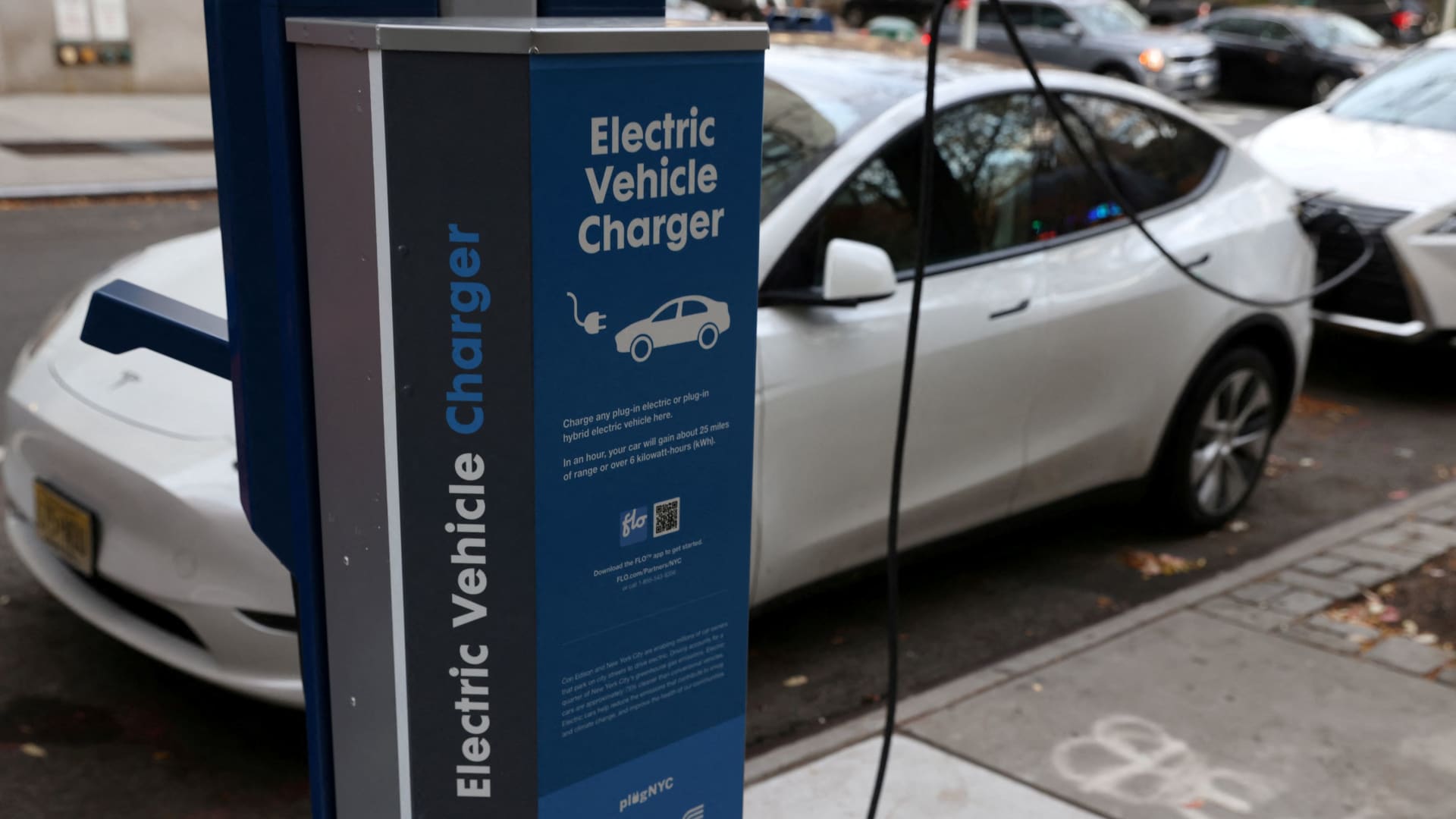Nearly half of Americans in a new poll say it’s unlikely they would purchase an electric vehicle as their next car, citing the lack of charging options and the high costs as the main barriers to going electric.
The poll by the Energy Policy Institute at the University of Chicago and the Associated Press-NORC Center for Public Affairs Research found that 47% of U.S. adults say it’s not likely they would buy an EV as their next car. And only 19% of respondents say it’s “very” or “extremely” likely they would purchase an EV.
Nearly 80% of the public cite the lack of charging infrastructure as a primary reason for avoiding an EV, a concern that was consistent among residents from cities, suburbs and rural areas, according to the poll.
“While there is plenty of interest in purchasing an electric vehicle, the high upfront cost of owning one and concerns about the country’s charging infrastructure are barriers to more people driving them,” Jennifer Benz, deputy director of the AP-NORC Center, said in a statement. “Policies that alleviate these concerns will be a key component of building support for an EV future.”
The findings come as the Biden administration pushes to aggressively boost EV sales and transition the country to clean energy. The White House has set a goal that up to half of all new vehicle sales be electric by 2030 in order to slash emissions and mitigate climate change.
The White House in February said it wants to see at least 500,000 electric vehicle chargers on the country’s roads by the end of the decade and unveiled a series of initiatives including commitments from companies that build and operate charging networks like Tesla, General Motors, Ford and ChargePoint.
The results also come before the Environmental Protection Agency this week is set to announce significant limits on tailpipe emissions that could require as much as 67% of new vehicles sold in the U.S. by 2032 to be all-electric. Such limits would be the country’s most aggressive climate regulations yet and would pose challenges for automakers.
But policies designed to boost the number of EVs on the road may be less popular across the country. The poll found that just 35% of Americans support setting stricter auto emissions rules to encourage automakers to increase EV sales and only 27% support requiring that all new car sales be electric or hybrid vehicles by 2035.
In order to help with the cost of purchasing and owning an EV, 49% of Americans support the federal government providing tax credits, cash rebates or other financial incentives for clean energy. The Inflation Reduction Act, for example, has set manufacturing standards for new EVs to be able to qualify for a $7,500 tax credit. Another 46% support increasing federal funding for EV infrastructure like charging stations.
Some Americans would choose an EV to help climate change, with 35% saying that curbing their personal carbon footprint is a major reason and 31% saying it’s a minor reason.
The survey also found that about half of Americans think climate policy is important, though this view is largely partisan. Democrats rank climate change policy as the third most important issue out of six, behind the economy and healthcare, while most Republicans rank climate change as the least important policy issue.
The poll, which was conducted from Jan. 31 to Feb. 15, interviewed 5,408 adults across the country and had a margin of sampling error of plus or minus 1.7 percentage points.
